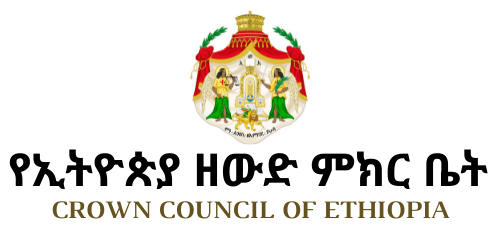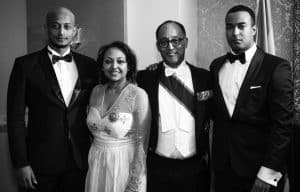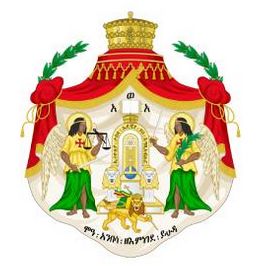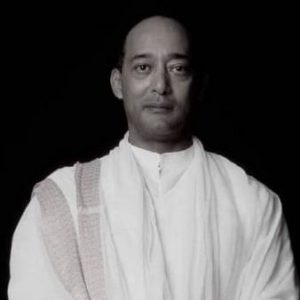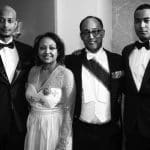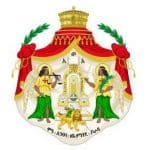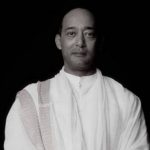On Sunday August 1, 2010, Voice of America (VOA) Amharic Service broadcast a report on the events in the Washington, DC, area, marking Celebrations of the 118th Birthday of the late Emperor Haile-Selassie.
Although the event was covered by numerous media outlets, VOA was able to conduct the interview with members of the Royal Family and others who participated in the event.
The reporter began the interview by stating that until his ouster on September 12, 1974, the Emperor had ruled Ethiopia for more than 50 years. Following the overthrow of the Emperor, the incoming military summarily executed the Emperor, and other members of the Royal Family, as well as high government and military officials. Others were forced into exile, including young members of the Royal Family.
The VOA interview focused on members of the Royal Family and their life in exile, to outline what had happened to the former First Family of Ethiopia following the overthrow of the Emperor and the Monarchy.
Prince Ermias began the interview by stating that he was the son of the late Prince Sahle-Selassie, who was the youngest child of the late Emperor.
Prince Tafari Makonnen stated that he was the fourth son of the late Duke of Harar, Prince Makonnen, the second son of the late Emperor.
The interviewer continued by stating that apart from the fact that the late Emperor’s relatives were living abroad, not much was known by the public about the present circumstances of the Royal Family.
Prince Ermias said that although none of the Emperor’s children were alive today, his grandchildren and great-grandchildren survived them and were currently residing in Ethiopia, and in different cities in the United States and Europe.
Prince Tafari said that he was a married man and a father of three children, one of whom was attending the University of Indiana, while the others were residing with him.
The next question focused on the role of the Crown Council. Prince Ermias responded by stating that the Crown Council — the sole surviving Imperial Ethiopian Constitutional institution — was a non-political organization which had, in principle, focused on Ethiopia’s history, culture, and future development. He said that the Ethiopian people, who were now a young generation [since the Emperor’s generation], for the most part were unaware of their own history. The presentation of Ethiopian history had been tainted by propaganda, and even that had mainly focused on hatred and division. “The future generation of Ethiopians must be able to examine both the good and the weak side of their own history in order to be able to move forward,” he said.
The interviewer continued by stating that for many years the former Military Government (Dergue) had tarnished the image of the Emperor through propaganda, and also that neo-nationalist historians had viewed the Emperor’s governance in a bad light. How, he asked, do you view the establishment of a Constitutional Monarchy in Ethiopia such as one in the UK, and what could it contribute to Ethiopia’s future?
Prince Ermias stated that it was his and the Crown Council’s belief that history was a principal pillar of any civilization and as such also a bridge into the future. To say this was not to claim that all which had transpired during the Imperial era was all correct. Rather, it was vital to distinguish that for the most part all those who served their country were patriots who, to the best of their abilities, knowledge, and the given challenges of the historical periods in which they lived, contributed to developing and safeguarding Ethiopia. On the question of reconstituting a Constitutional Monarchy in Ethiopia, it was, Prince Ermias said, unequivocally the decision of the Ethiopian People. Having said that, a Constitutional Monarchy could serve the Ethiopian People by being a uniting factor, an institution which could serve to enhance reconciliation and become an historical bridge for future generations. He continued that keeping these attributes in my mind would serve Ethiopia’s future development by contributing both to Ethiopia’s historical prestige and building common ground and unity for future development. “A common history built on knowledge, tolerance, and mutual respect between our diverse comunities, will unite us in outlook to continue building a strong nation,” he said.
The reporter asked about their livelihoods and how they live?
Prince Ermias said that he was now engaged in private business and had worked in other jobs just as all Ethiopians were doing, living in the Diaspora. He acknowledged that there had been considerable fallacious propaganda that the Emperor had amassed a vast fortune at the expense of the Ethiopian people and that, as a result, the Royal Family were living in luxury.
Prince Tafari, for his part, said that he worked in a government job, and reiterated that the Royal Family led a life no different than any other Ethiopians and that he welcomed any Ethiopian to visit him and witness it for themselves.
The reporter then asked about how the new generation of members of the Royal Family were raised. Were they are aware of their identity and culture?
Prince Tafari said that his children were aware of their identity and heritage. However, since they had not lived during those times, it was, to them, more history then reality.
Prince Ermias continued that his children were also aware of their identity and heritage. He said that, as all Ethiopian know, it was difficult raising children in two cultures, and that it was his wish that his children would know that they had relatives and countrymen in Ethiopia and become familiar with their country.
The reporter then asked the identity of the current Crown Prince.
Prince Ermias said that, according to tradition and law, the current Crown Prince during the present interregnum was Zera Yacob Asfawossen, and that the Crown Council was a rallying point for the Crown with specific Constitutional rules and obligations.
In concluding the interview, the reporter remarked that he had witnessed a representative of the Ethiopian Government at the event, and asked what the current relationship was between the Government of Ethiopia and the Crown Council.
Prince Ermias responded by saying that the current government had made it clear that the Crown Council, like all Ethiopian organizations, had the right to establish itself legally in Ethiopia. He continued by saying that it was his wish to see the Crown Council established on the ground in Ethiopia soon, and for the organization to become an institution which would serve as a force of healing, reconciliation, and unity, and contribute its share for the development of our Nation.
